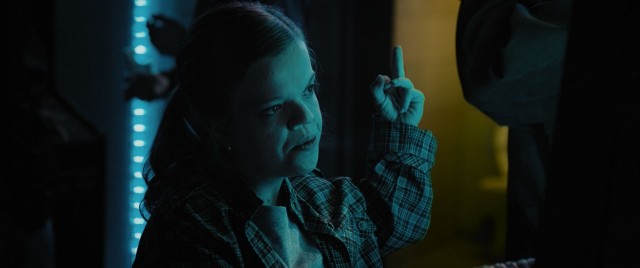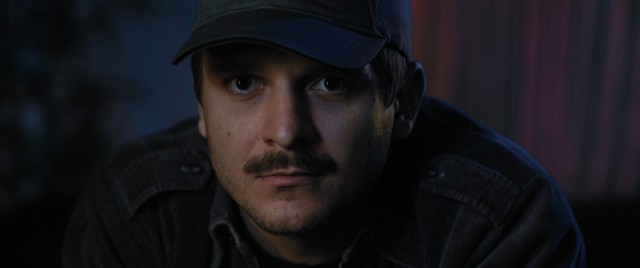There is a brutal honesty that permeates through Tadeusz Lysiak’s powerful short, The Dress. The director turns his attention to a woman of short stature, and he focuses on her desires and her need for love. You will go through a gamut of emotions while you are watching Lysiak’s film, but you will leave it with affirmation that we all deserve to be seen and felt.
(Please note that this interview discusses the entire film, and it should be seen before reading. I have linked the film below.)
Lysiak is not of short stature, but he knew that he wanted to craft a story about someone who we don’t get a lot of stories about. He kept reading about how people with disabilities are never given the attention they deserve when it comes to being seen in film and television.
“The movie was always meant to be a universal story about big emotions like love, loneliness, and desire. I wanted people to identify with it all over the globe, and love is the biggest emotion that I wanted people to feel. Loneliness and love are connected. I read an article about how people with short stature deal with ordinary things on a daily basis. I immediately felt that it would’ve been a great idea to explore, and I wanted it to contain desire and love. It is very harsh and sad that some people with disabilities feel they are doomed to not feel that love, and they are weighted down by that sadness. I see how society rejects other because of their appearance. In Poland, it’s a huge thing, and women are mistreated by the government. Loneliness is a huge part, but it’s only one part.”
 Anna Dzieduszycka is a force in Lysiak’s film. Julka has walls built up, but she makes it fascinating to see them being torn down by her desire over a man. While collaborating with Dzieduszycka, Lysiak knew that The Dress would be an honest and authentic portrayal of a woman’s lack of physical affection. Her yearning is palpable.
Anna Dzieduszycka is a force in Lysiak’s film. Julka has walls built up, but she makes it fascinating to see them being torn down by her desire over a man. While collaborating with Dzieduszycka, Lysiak knew that The Dress would be an honest and authentic portrayal of a woman’s lack of physical affection. Her yearning is palpable.
“Without Anna, this movie wouldn’t exist. I wanted to have authentic casting, because I read some devastating articles about inclusion in cinema, because, I think, only two percent of speaking roles are for people with disabilities. We need to change that. People with disabilities are really misrepresented. I had to find an actress who was not professional, and I was lucky enough to meet Anna. She was the first actress I spoke with, and we talked about the script. When she finished reading it, she told me that it was very real, and she could identify with a lot of the scenes. When you’re making a movie about rejection, you can fall into a trap of being too brutal and sad, but I wanted her to be a powerful one. I wanted her to give you the finger or be straight forward, and when after I met Anna, I knew I had to put more of that into the character. She likes death metal instead of sad jazz or piano. It gives her so much power since music is such an important part of this movie.”
The character of Bogdan, Anna’s object of affection, is tricky, but Lysiak wanted his presence to be felt despite his lack of time on screen. Szymon Piotr Warszawski reminded me of a mixture of Bradley Cooper and Matthew McGorry. In one of their earlier scenes, Julka and Bogdan flirt and he tells her, “I don’t mind your height.” I can’t imagine what that must feel like for a person of short stature, and it indicates to us how high Julka’s walls are.
 “Not a lot of people ask about Bogdan, and he’s very important. I based him on a character from a Western. He only appears in the first part of the book, but the entire time, his cowboy misses his Indian friend. He thinks about him all the time, and I was inspired by this book. I wanted to write a character who is not visible, but he is in Julka’s mind. I wanted him to influence her actions, and it shows her longing and how she has a lack of intimacy in her life. She wants to change that. I wanted to give people hope at first and that the world can change. But then I wanted to end it with a strike in your gut. The movie needed to end with a question mark and not a period. When the end credits roll, I want you to ask some questions about the conditions of society. What can be changed? If I gave you a happy end or a feeling of comfort, you would think that Julka has some problems but we can go on to live our lives.”
“Not a lot of people ask about Bogdan, and he’s very important. I based him on a character from a Western. He only appears in the first part of the book, but the entire time, his cowboy misses his Indian friend. He thinks about him all the time, and I was inspired by this book. I wanted to write a character who is not visible, but he is in Julka’s mind. I wanted him to influence her actions, and it shows her longing and how she has a lack of intimacy in her life. She wants to change that. I wanted to give people hope at first and that the world can change. But then I wanted to end it with a strike in your gut. The movie needed to end with a question mark and not a period. When the end credits roll, I want you to ask some questions about the conditions of society. What can be changed? If I gave you a happy end or a feeling of comfort, you would think that Julka has some problems but we can go on to live our lives.”
The ending of the film has some devastating moments, but Lysiak insists that that is not the entire film. What happens between Julka and Bogdan will not define her. He reveals what he would say if he could give her any advice.
“This is not the end, and there is still a lot of good in people. Someone will be there for you one day. I really strongly believe that. Everyone has a right to love, and love has no shape. It can be in your life when you don’t expect it to be. I would give her a lot of comfort.”
The Dress is available on Short of the Week.
















![2025 Oscars: Can a Late-Breaker Still Win Best Picture? [POLL]](https://www.awardsdaily.com/wp-content/uploads/2024/10/gladiator-350x250.jpg)
